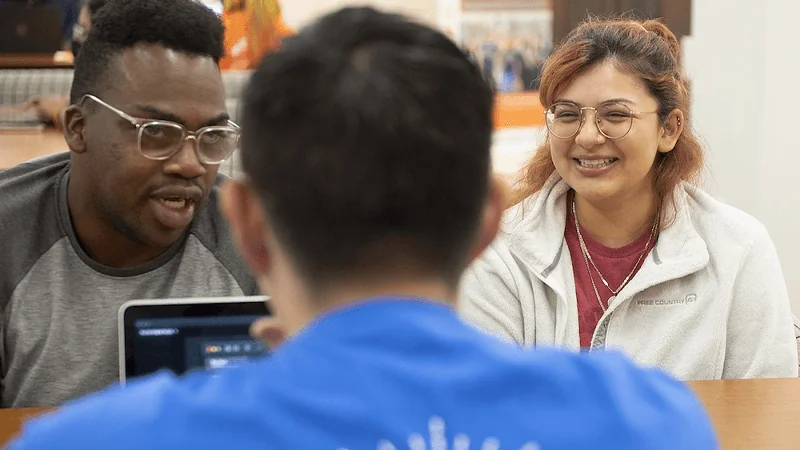Sam Houston State University is committed to providing an exceptional learning experience for all students and is federally designated as a Hispanic Serving Institution. A recent grant awarded by the National Science Foundation (NSF) is the first grant that the university has received based on its HSI status and will allow SHSU to provide Hispanic students pursuing STEM degrees more support.
The award called the Improving Undergraduate STEM Education grant, will provide funding for the university to train instructors, teaching assistants and mentors in how to offer support to Hispanic STEM students. Support can include tutoring, connecting students with resources on campus or fostering a classroom culture of inclusion and collaboration.
According to Steven D. Koether, the principal investigator (PI) for the grant and lab coordinator at SHSU, benefits from the funding extend beyond the students that will be served because of the training their classroom leaders receive.
“What’s original about this training is not only the demographics we’re seeking to support,” Koether said. “We’re compensating them for their time, which will lead to significant scholarships for student employees and significant stipends for our faculty and staff. By treating the community as a whole, we are supporting student success.”
Koether explained that grants tend to support faculty instructors exclusively, which makes the NSF’s provisions for faculty and staff instructors, teaching assistants, tutors and academic coaches a novel offering to SHSU. Furthermore, he finds the training also to be a unique opportunity, as it will allow graduate student assistants in those leading gateway STEM courses to learn how to be culturally responsive and foster student success.
“When we go through grad school, it doesn’t include that type of training, so we don’t necessarily get that culturally responsive training to help students access resources on campus,” Koether said. “If our instructors have that training, it will help students of all backgrounds. Everybody will have better access to better instruction and our resource centers on campus.”
Koether and his team of fellow PIs have partnered with the College of Science and Engineering Technology (COSET), the College of Health Sciences, the Graduate and Professional School, the Professional and Academic Center for Excellence (PACE), the Academic Success Center and Inclusion Initiatives to encourage student engagement with these resources.
In addition, Koether believes that the team’s collaboration with scholars outside of COSET, such as health and social scientists, may have set SHSU apart from other grant applicants. Their approach is to cover all realms of science in hopes of encouraging student success and retention.
“There aren’t a lot of campuses that have this level of training for our tutors, mentors, academic coaches and teaching assistants,” Koether said. “It helps us move from Hispanic enrolling to Hispanic serving.”
The Co-Principal Investigators on the project bring expertise from a wide array of disciplines as well: Steven Koether - Department of Biological Sciences, Mary Catherine Niño Breen - Academic Success Center, Ben Mitchell-Yellin - Department of Psychology and Philosophy, Chase Young - School of Teaching and Learning and Adannaa Alexander - Department of Public Health. The project will be evaluated by Ricardo Montelongo – Department of Educational Leadership.
This material is based upon work supported by the National Science Foundation under Grant No. 2247928. Any opinions, findings and conclusions or recommendations expressed in this material are those of the author(s) and do not necessarily reflect the views of the National Science Foundation.


